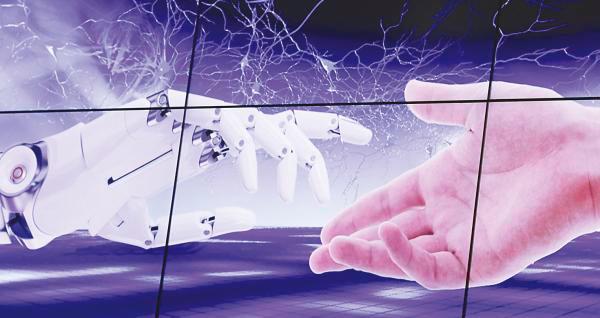SOME of the largest strides made by mankind over the past few decades have been the advancements in personal computing and the creation of the world wide web.
Every sector and industry around the world has been impacted by these advancements, and education is no exception.
Looking to more recent technological advancements, artificial intelligence (AI) has taken the world by storm. Even the acronym “AI” was named the Collins Word of the Year for 2023, and just like the influence personal computing and the world wide web have had, AI is already leaving an indelible mark on education.
Debates on whether this influence is good or bad will probably continue for years to come but regardless of which side of the fence you are on, it is undeniable that students are using AI today, and that is something we need to be aware of as educators.
Generative AI can be found almost everywhere online – from generic tools such as the ever-popular ChatGPT to more task-specific items such as ChatPDF and Jenni AI. We even have AI that can produce non-text-based output – Midjourney and DALL-E can create artwork, AIVA and Soundful can create music, and Synthesia and InVideo can create videos – all from user-defined prompts.
While these are all amazing technological advancements, AI has been met with cynicism as well, especially among those who champion human creativity over the soulless products of generative AI.
While I am an advocate of using AI to enhance teaching and learning, a small part of me is worried about the possible impact AI can have on the originality and creativity of our younger generation, who undoubtedly will continue to use AI for the rest of their lives.
As a lecturer, one of the tasks that falls under my purview is to assess student presentations, be it class assignments or research presentations by postgraduates.
With nearly two decades of experience in academia, spanning from my undergraduate years to the present day, I have likely participated in hundreds of presentations. Despite the considerable evolution in education over the past two decades, surprisingly, student presentations have remained largely unchanged.
Considering the range of modern presentation tools available to students today, one would expect student presentations to be more unique and noticeably different from one another. Instead, what I often see is the same core structure in the presentations, with variations only in graphical elements and colour schemes, lacking originality.
Platforms such as Canva and Visme are exceptional for creating visually engaging presentations and graphic designs. Each offers thousands of visual assets, themes and designs to help you create any kind of presentation you need.
However, does choosing a template from a library help students develop originality? Is it creative expression or merely a choice made on a whim?
Additionally, these presentation tools also come with generative AI to help users write the content of their presentations. So, not only do the designs and visual aesthetic of the presentations lack originality but even the written content can be generated by AI.
Assessment of student work is one aspect of education that needs to be reimagined, thanks to the possibility of students submitting AI-generated work as their own.
However, more importantly, the development of student originality, creativity and critical thinking can also be impacted by the use of generative AI, which is of far greater concern.
If students graduate having an underdeveloped sense of originality and a poorer capacity for critical thinking, their careers can be affected. Moreover, if our graduates struggle to think creatively, it can impact our future innovation.
In the video game “Detroit: Become Human”, human-like androids live side-by-side with mankind. At one point in the game, players learn that in this fictional world set in 2038, less than 5% of music is made by humans, with androids making the rest. We are unlikely to reach this point of civilisation in our lifetime but I do believe that the rampant proliferation of generative AI will eventually diminish human creativity if we are not careful.
Generative AI can be a wonderful learning tool but we must ensure it does not rob us of our opportunities to grow.
The writer is a senior lecturer at the Department of Oral and Craniofacial Sciences, Faculty of Dentistry at Universiti Malaya. Comments: letters@thesundaily.com









